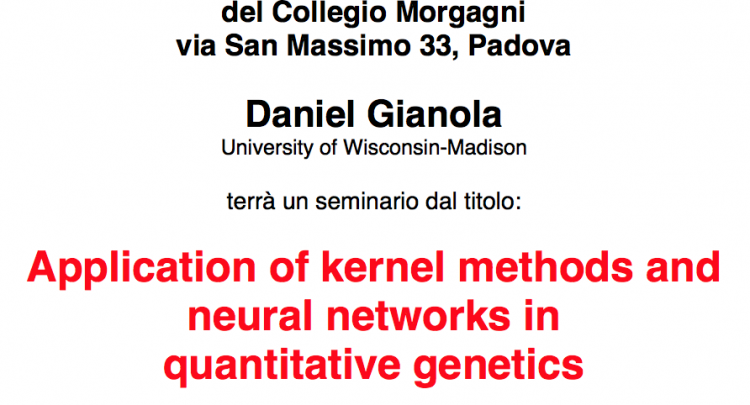
KERNEL METHODS AND NEURAL NETWORKS con il Prof. Daniel Gianola
Il Prof. Daniel Gianola terrà un seminario dal titolo “Application of kernel methods and neural networks in quantitative genetics” al Collegio Morgagni in Aula Magna mercoledì 7 giugno p.v. alle ore 17.30, all’interno delle attività didattiche della Scuola Galileiana.
L’evento è aperto al pubblico fino ad esaurimento dei posti a sedere.
Di seguito è dispobinile l’abastract dell’evento:
The emergence of a massive number of molecular markers has prompted research aimed at exploring genome-wide associations with complex phenotypes well as prediction of outcomes. Inference is cursed by dimensionality (the number of markers, p, exceeds the number of observations in the sample, n). Genome-enabled prediction has become important in animal and plant breeding, and it may play a role in personalized medicine. A relevant area of research is that of finding a “prediction machine” that is flexible and robust (stable) with respect to type of input data, gene action and environmental circumstances, and that is amenable to routine computing as required in applied genetics. Much effort has been done in developing Bayesian linear regression models differing in their prior distribution, with the objective of capturing varied forms of “genetic architecture”. Machine learning methods, on the other hand, have been used in fields where either complex problems (e.g., image reconstruction) or a lack of good theory (e.g., economics) are encountered. Based on our experience with reproducing kernel Hilbert spaces regression (RKHS) and neural networks we have found that the latter are unstable in performance as their propensity to over-fitting is hard to temper by regularization, unless variable selection is conducted concomitantly. It appears that RKHS is one of the best prediction machines for genome-based prediction. In this presentation, we review essentials of the RKHS and neural network approaches and discuss evidence, as well a new class of neural networks connected with the field of deep learning.

